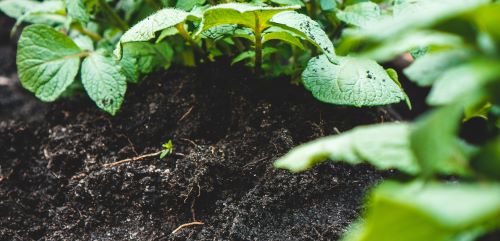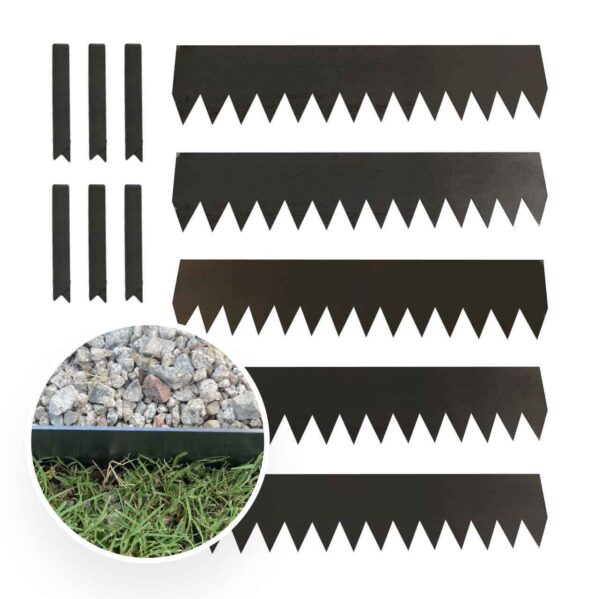Eco-Friendly Farming: A Practical Guide to Reducing Chemical Dependence

Sustainability is becoming a necessity rather than an option in agriculture. The extensive use of synthetic fertilizers and chemical pesticides has sparked worries about long-term production loss, environmental contamination, and soil degradation. Because of this, farmers who want to preserve soil health, save biodiversity, and grow high-quality crops increasingly use eco-friendly agricultural practices.
Reducing reliance on chemicals in agriculture does not entail sacrificing productivity or financial success. With the correct strategy, natural solutions can be just as successful as traditional chemical inputs. Farmers may succeed in the long run while protecting the environment by using sustainable alternatives including plant-based extracts, organic fertilizers, and biological pest management.
Recognizing the Effects of Chemical Agriculture
Because of its effectiveness and capacity to boost yields rapidly, chemical-based farming became the standard. But there are now major worries about its long-term consequences on biodiversity, water quality, and soil health. Long-term usage of synthetic fertilizers increases reliance on outside inputs by depleting vital soil nutrients. However, pesticides frequently kill helpful and harmful insects, upsetting the ecosystems’ natural equilibrium.
Key concerns include:
- Pesticide resistance among pests requires stronger and more toxic chemicals over time.
- Soil degradation due to the overuse of synthetic fertilizers leads to lower productivity in the long run.
By transitioning to sustainable practices, farmers can restore soil vitality, maintain ecological balance, and reduce health risks associated with chemical exposure.
Natural Pest Management: A Viable Alternative
One of the most effective ways to reduce chemical dependence is by adopting biological pest control methods. Many eco-friendly solutions have successfully managed pests without harming beneficial insects or pollinators.
Products like eco mite insecticides target harmful mites and other crop-damaging pests using natural ingredients. Unlike conventional pesticides, these solutions do not lead to resistance buildup and are safer for the surrounding environment. Similarly, integrating beneficial insects such as ladybugs and parasitic wasps can help keep pest populations in check.
Farmers who use biological pest control report fewer outbreaks of resistant pests, demonstrating that natural alternatives can be just as effective, if not better, in the long run.
The Role of Bio-Based Inputs in Sustainable Agriculture
Replacing chemical fertilizers with bio-based alternatives is crucial in reducing dependence on synthetic inputs. Organic fertilizers improve soil structure and nutrient availability without causing long-term depletion.
Innovative products like Bio Beta and Agro Beta enhance soil fertility through natural compounds that work harmoniously with plant roots. These biofertilizers introduce beneficial microbes into the soil, promoting nutrient absorption and overall plant health.
For example, farmers using Beta Botanical Extract have seen improved crop resilience and higher yields over multiple growing seasons. These extracts contribute to plant strength while maintaining ecological balance, making them an essential tool for sustainable farming.
Soil Health: The Foundation of Sustainable Farming
“Healthy soil is not just the foundation of farming; it is the foundation of life itself.”
Regenerative agricultural practices prioritize soil health to ensure long-term productivity without excessive reliance on chemical inputs. Techniques such as crop rotation, cover cropping, and minimal tillage help preserve soil integrity, retain moisture, and enhance microbial activity.
Farmers can improve soil fertility naturally by reducing soil disturbance and maintaining organic matter levels. Research shows that farms implementing regenerative practices have 20% higher soil organic carbon levels, translating into better water retention and reduced erosion.
Eco-Friendly Weed Control Strategies
Weed management is another challenge that often leads to excessive chemical use. While herbicides provide a quick solution, they contribute to soil degradation and water contamination.
Eco-friendly alternatives include:
- Mulching: Using organic matter such as straw or wood chips to suppress weed growth while enriching the soil.
- Crop Competition: Planting dense crops that naturally suppress weeds, reducing the need for external control methods.
Mechanical and flame weeding are also viable strategies, particularly for small-scale farms looking to eliminate herbicide use.
Water Conservation in Sustainable Agriculture
Sustainable farming is not only about reducing chemical inputs but also about using natural resources efficiently. Water conservation techniques are crucial in reducing environmental impact while maintaining high crop productivity.
Drip irrigation systems and rainwater harvesting methods allow farmers to optimize water usage, ensuring that crops receive adequate hydration without excessive waste. Research indicates that farms using precision irrigation reduce water consumption by up to 50%, demonstrating how modern technology can align with sustainable agriculture.
The Economic Viability of Reducing Chemical Dependence
A major concern among farmers considering eco-friendly practices is cost. While the initial transition may require investment, long-term savings from reduced chemical input costs and improved soil health make sustainable farming a financially viable option.
Organic produce also commands a premium price in the market, allowing farmers to compensate for potential yield differences. Consumers are becoming increasingly aware of the health and environmental benefits of organic farming, driving demand for eco-friendly products.
Government incentives and subsidies further support the shift to sustainable agriculture. Many regions offer grants for farmers adopting eco-friendly methods, helping ease the financial burden of transitioning to organic practices.
Integrating Technology into Sustainable Farming
Modern technology is critical in reducing chemical dependence while maintaining efficiency. Precision agriculture techniques like remote sensing and automated irrigation allow farmers to optimize resource use.
Drones and AI-powered analytics can detect pest infestations early, enabling targeted interventions rather than widespread pesticide application. This precision approach minimizes chemical use while ensuring crops receive the necessary protection.
By integrating these technological advancements with eco-friendly farming solutions, agriculture can move toward a more sustainable and efficient future.
FAQs
Are natural pest control methods as effective as chemical pesticides?
Yes, when applied correctly, biological solutions like eco-mite insecticide and beneficial insect integration control pests without causing resistance buildup.
How does organic farming impact soil health?
Organic farming improves soil structure, enhances microbial activity, and increases nutrient retention, leading to long-term sustainability.
Is reducing chemical dependence financially sustainable?
While the transition may require an initial investment, long-term savings on chemical inputs, higher organic market prices, and government incentives make it a viable financial decision.
What is the best way to transition to eco-friendly farming?
Start by gradually replacing synthetic fertilizers with organic alternatives, implementing crop rotation, and using biological pest control methods to reduce dependency on chemicals.
Check out more blogs:
Introduction to Cocoa Farming in India: Varieties and Planting Techniques









